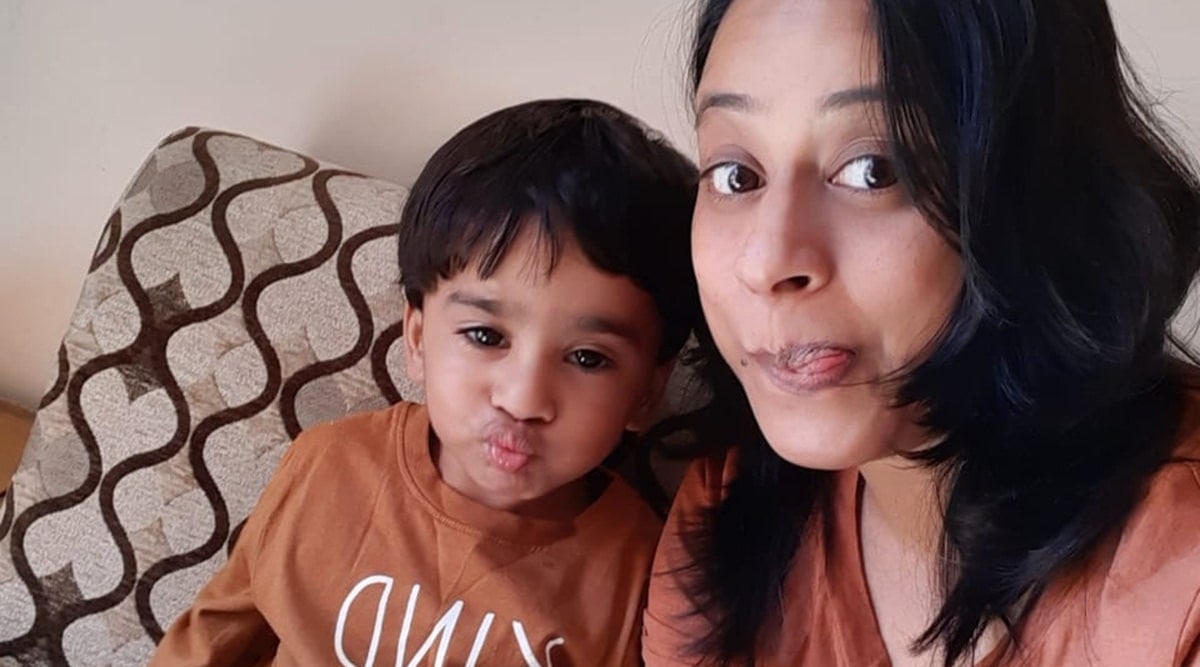Notes from a vegan mom: ‘My son is powered by plants’

Cow's milk is meant for calves- not humans. How could we steal the nutrition that was meant for another baby and give it to our children?

By Erika Goyal
I want my son, Kiyash, to grow up healthy and kind, so I’m making sure he’s powered by plants. At nearly three years old, he’s fit and never sick and he enjoys the taste of nutritious foods. He’s a cheerful child, who excels at math and alphabetical games, and I’m positive that the wholesome foods I feed him contribute to his healthy body, quick wit, positive attitude, and overall well-being.
I breastfed Kiyash for the first seven months of his life, since human breast milk is best for infants. According to the American Academy of Pediatrics, babies should be breastfed exclusively for the first six months. Meanwhile, a large-scale Brazilian study suggests that breastfeeding babies for longer may even help them become more intelligent and achieve more in life.
Now that Kiyash is older, he has many healthy favourite foods: tofu, vegan yogurt, soy milk, daal, peanuts, almonds, raisins, idli and dosa, rotis, and vegan pancakes. His intake of lentils, fruit, and green vegetables easily meets the Recommended Daily Allowance (RDA) by India’s National Institute of Nutrition for protein (12.5 grams) and calcium (500 mg) for a child his age. For a sweet treat, vegan ice-cream made with blended frozen bananas and other fruit offers great taste, without the milk or added sugar.
I never feed Kiyash foods made with cows’ milk or other animal-based ingredients. According to the Academy of Nutrition and Dietetics in America, “Appropriately planned vegetarian, including vegan, diets are healthful, nutritionally adequate, and may provide health benefits for the prevention and treatment of certain diseases.” They say eating plant-powered in a well-planned manner is “appropriate for all stages of the life cycle, including pregnancy, lactation, infancy, childhood, adolescence, older adulthood, and for athletes.”
Reputable health experts tell us that animal-based foods contribute to common, chronic diseases. For example, the Physicians Committee for Responsible Medicine warns parents that the milk proteins, sugar, and saturated fat found in dairy-based foods contribute to obesity, diabetes, iron deficiency, colic, and other ailments that can afflict children and even cause heart disease later in life.
In addition, cows’ milk is meant for calves – not humans. How could I look Kiyash in the eye if I stole the nutrition that was meant for another baby and gave it to him? It’s cruel for the dairy and egg industries to kill male calves and chicks because they can’t produce milk or lay eggs, and I’m certain my son would never knowingly support such unkind practices.
I want Kiyash to make healthy and humane vegan choices. By raising him to have compassion and respect for animals, I’m also teaching him to be non-violent and empathetic to his human friends and future classmates, too. That’s the best gift I could want for Mother’s Day – and every day thereafter!
Some Fact and Fiction About Cows’ Milk
Myth
Cows’ milk is good for children.
Fact
The animal proteins, sugar, and saturated fat in dairy products contribute to heart disease, diabetes, and obesity.
Myth
Cows’ milk is the only food that’s rich in calcium.
Fact:
The best calcium sources are green leafy vegetables and legumes.
Myth
Cows’ milk helps build strong bones.
Fact
Animal protein actually leaches calcium from the bones. If you want to build and maintain strong bones, wean yourself from cows’ milk, cheese, and other animal-based foods and eat calcium-rich vegan foods.
Myth
They don’t kill cows to get milk.
Fact
Cows and buffaloes are kept almost constantly pregnant so that they’ll produce a steady supply of milk. Male calves are often killed, left to starve, or abandoned since they can’t produce milk. Females are turned into milk machines like their mothers. When their milk production wanes, they often end up at a slaughterhouse.
(Views are personal and cannot be attributed to the publication. Erika Goyal is PETA India’s Associate Manager of Online Marketing and animal rights advocate.)
For all the latest Parenting News, download Indian Express App.
Source: Read Full Article